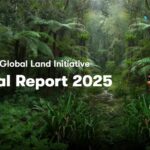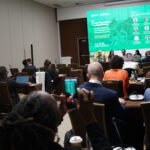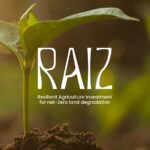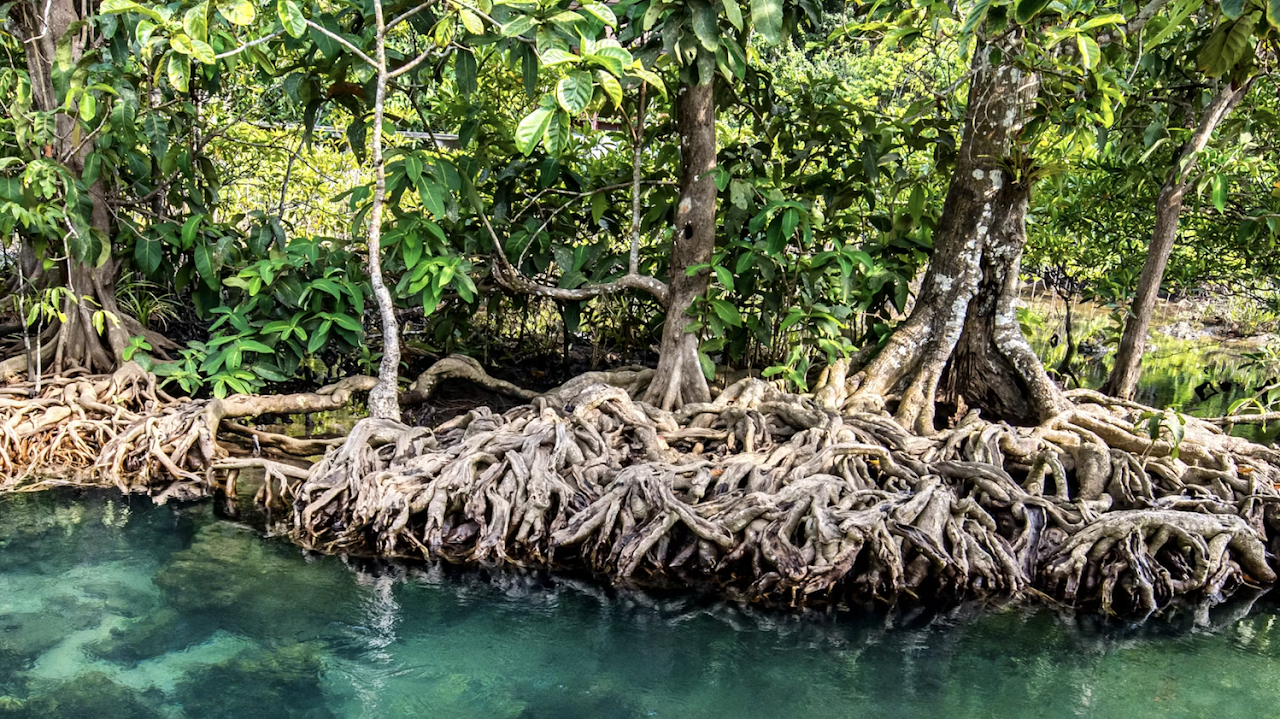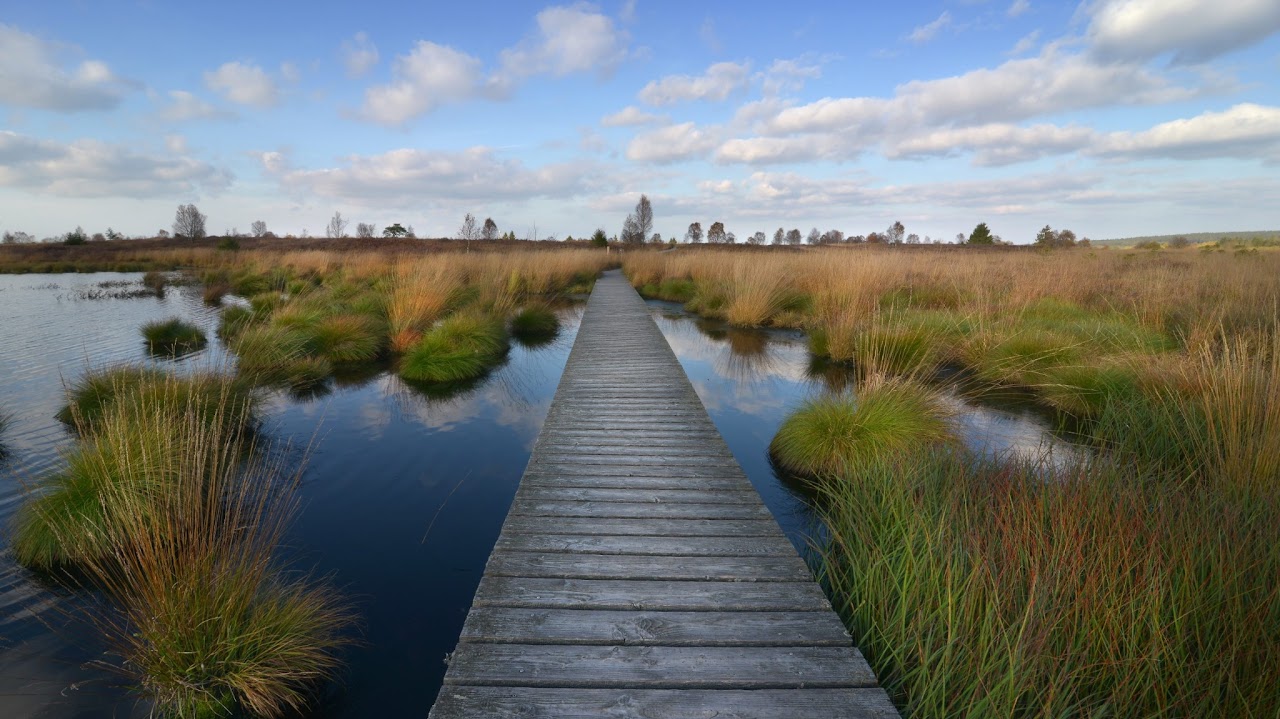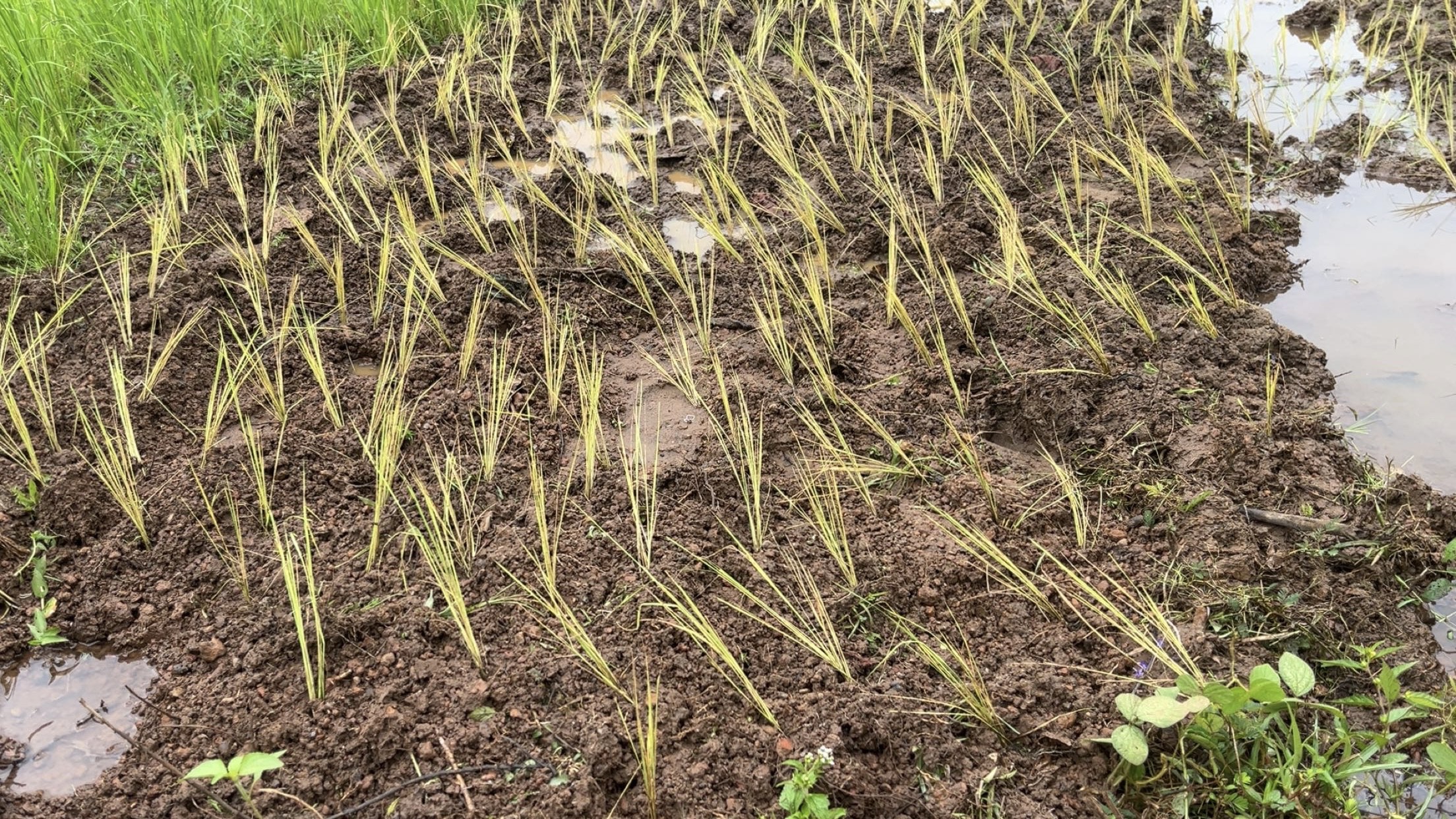Triggering change in the Arab States /MENA region
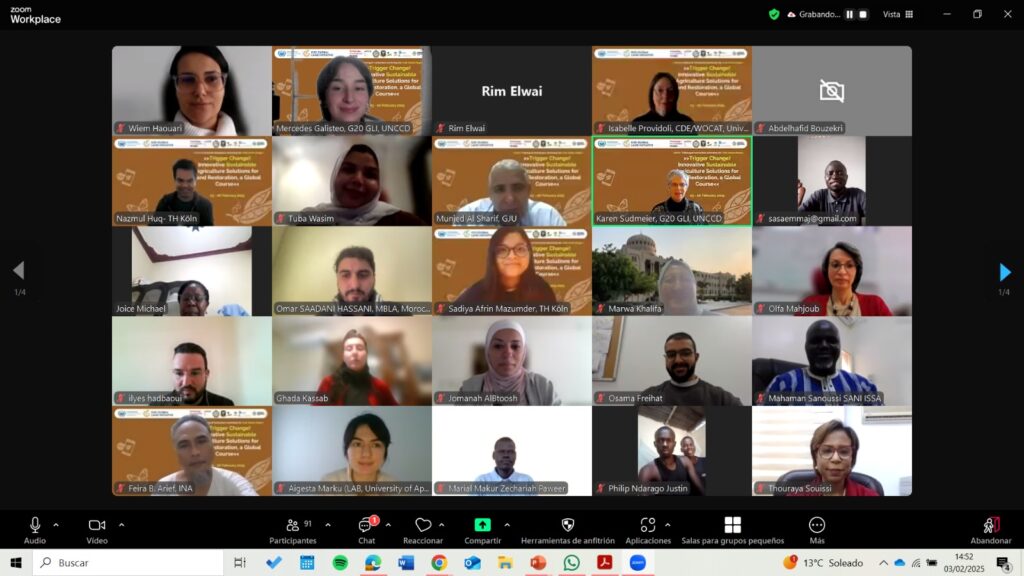
Photo credit: UNCCD/G20
A screenshot of some of the workshop participants.
Over 100 educators from the Arab States / Middle East and North Africa (MENA region) attended a recent online Training of Trainers’ workshop: “Trigger Change! Innovative Sustainable Agriculture Solutions for Land Restoration” (3-6 February 2025).
The workshop was hosted by the German-Jordanian University, TH Köln, (University of Applied Sciences, Cologne), Germany, and the G20 Global Land Initiative/ UNCCD. Dr. Mahmoud R. Fath-Allah, Senior Economist, Director of the department of Environmental, Meteorological Affairs, Economic Sector, League of Arab States, delivered the opening remarks. He highlighted the importance of the workshop to educators in the region. This was followed by a diverse set of presentations, group work and guest lectures from experts in the region and beyond.
The enthusiasm remained high for the duration of the interactive four-day workshop. The workshop aimed at to introduce university professors, instructors and trainers to the “Trigger Change!” university course.
This elective course for advanced undergraduates or master’s students enrolled in agriculture and related programs will bridge a gap in higher education by equipping students with skills that combine sustainable agriculture with innovation and entrepreneurial skills.
The team presented the main topics and properties of the course: land, landscapes and society; agricultural approaches to Sustainable Land Management (SLM) for land restoration; tools and technologies for land restoration assessment and monitoring; decision-making tools and enabling factors for land restoration; and catalysts for innovation and start-ups.
They also explained the core course principles:
- The course is organized in modules (and sub-modules or units), which can be taught individually or as a package, together with a note encouraging interactive didactics;
- The course is developed as an elective course, equivalent to 48 hours of teaching materials or three credits under the European Credit Transfer System;
- The course materials are made freely available to university professors or other institutions with a mandate to instruct land restoration as part of agriculture programs;
- The course philosophy is to provide an interactive learning environment that emphasizes active learning, while providing a teaching foundation for professors who may not be familiar with all topics;
- The course materials consist of 48 PowerPoint lectures (around 30 minutes each); student exercises; suggested readings; a course manual; and 10 case studies from around the world.
- The course was co-developed by 18 universities and peer-reviewed by 10 experts, globally.
Participants’ feedback was lively and engaged, with high enthusiasm for the course, its transdisciplinary contents and interactive pedagogics.
The workshop closed with a thank you by Dr. Muralee Thummarukudy, Director, G20 Global Land Initiative/ UNCCD: “We thank you for your active participation in our workshop this week. This is not the end, but the beginning of your new educational journey where we hope that you will incorporate our course into your curricula and become our ambassadors to promote the course at your university and beyond.”
For more information on how to receive the course materials: https://g20land.org/trigger-change/
